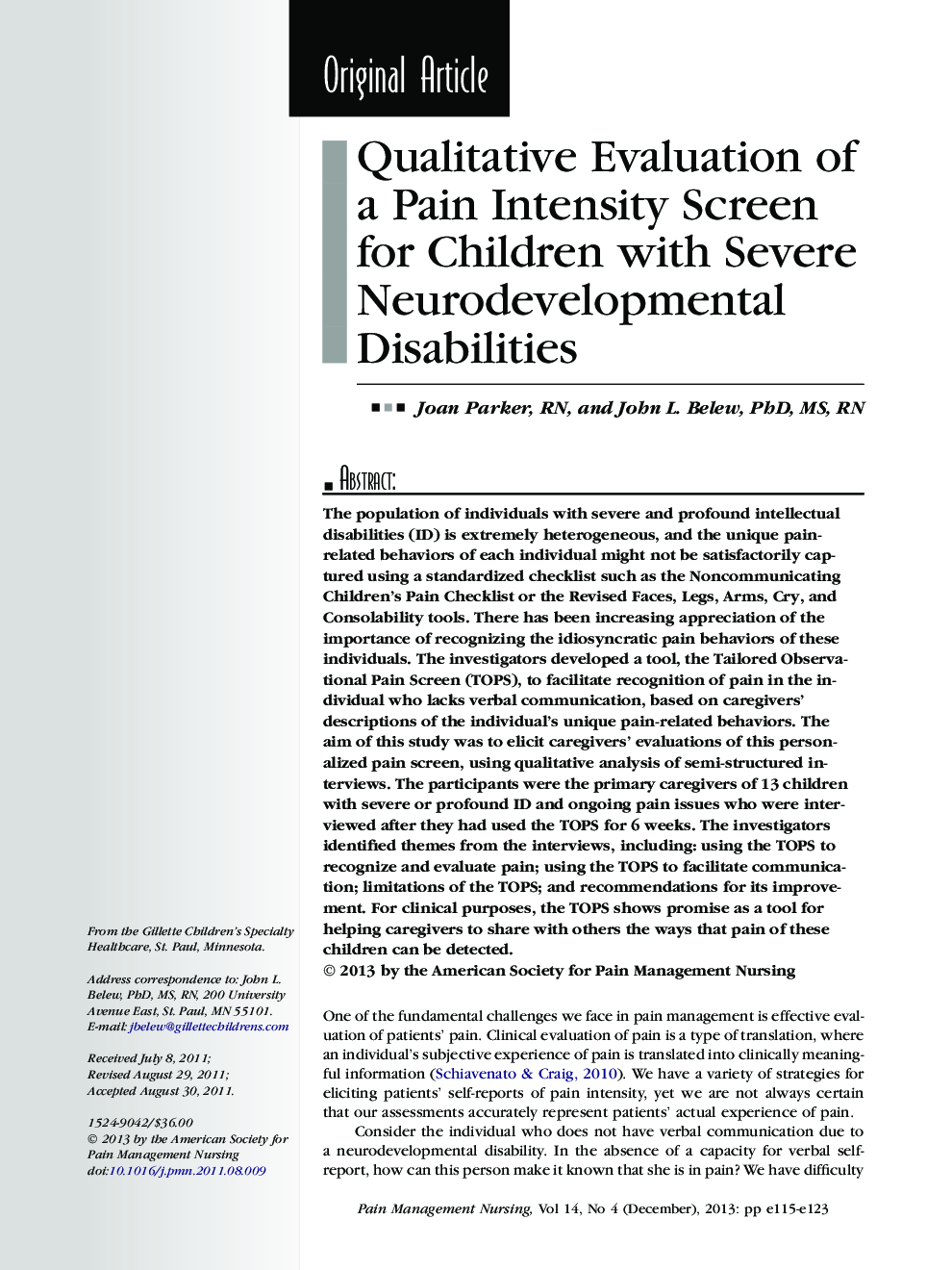| کد مقاله | کد نشریه | سال انتشار | مقاله انگلیسی | نسخه تمام متن |
|---|---|---|---|---|
| 2674668 | 1141727 | 2013 | 9 صفحه PDF | دانلود رایگان |

The population of individuals with severe and profound intellectual disabilities (ID) is extremely heterogeneous, and the unique pain-related behaviors of each individual might not be satisfactorily captured using a standardized checklist such as the Noncommunicating Children's Pain Checklist or the Revised Faces, Legs, Arms, Cry, and Consolability tools. There has been increasing appreciation of the importance of recognizing the idiosyncratic pain behaviors of these individuals. The investigators developed a tool, the Tailored Observational Pain Screen (TOPS), to facilitate recognition of pain in the individual who lacks verbal communication, based on caregivers' descriptions of the individual's unique pain-related behaviors. The aim of this study was to elicit caregivers' evaluations of this personalized pain screen, using qualitative analysis of semi-structured interviews. The participants were the primary caregivers of 13 children with severe or profound ID and ongoing pain issues who were interviewed after they had used the TOPS for 6 weeks. The investigators identified themes from the interviews, including: using the TOPS to recognize and evaluate pain; using the TOPS to facilitate communication; limitations of the TOPS; and recommendations for its improvement. For clinical purposes, the TOPS shows promise as a tool for helping caregivers to share with others the ways that pain of these children can be detected.
Journal: Pain Management Nursing - Volume 14, Issue 4, December 2013, Pages e115–e123